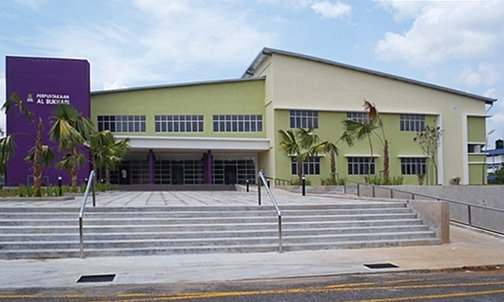Date: 21st June 2017
Time: 8.15 am- 10.05 am
Venue: At- Tabari Hall
Conducted by: Madam Rohana Binti Wan Endut
 |
| (photo taken from google) |
Assalamualaikum and hi! So, for today's topic, we are going to talk about memory, learning & improving concentration. I hope this topic can help lot of people especially for students :D
Skills. What is skills? Skills is the ability to do something well. Skills also talents that you have naturally.
LEARNING PYRAMID
 |
| (phoro taken from google) |
Learning pyramid is important especially for students. It can help students to identify how many percents of informations they will get based on their activities.
Now, let's talk about brain and and memory.
Memory is the faculty by which the mind stores and remembers information. It functions like computer hardware.
While brain is organ that we have in our body. It also function like computer hardware. When we learn and remember, we will we will encode, and retrieve the information that we received.
While brain is organ that we have in our body. It also function like computer hardware. When we learn and remember, we will we will encode, and retrieve the information that we received.
 |
| (photo taken from google) |
These analogy is like computer. For example:
- Microphone = Mouth
- Mouse = Legs
- Printer= Hands
- CPU= Brain
- Pendrive = Informations
- and etc.
THE STORAGE (RETAIN INFORMATION)
 |
| (photo taken from google) |
There are three types of memory according to information Processing Model (Atkinson & Shiffrin’s model in Santrock )
- Sensory memory
- Short term memory
- Long term memory
1. Sensory memory
Sensory memory is the shortest-term element of memory. It is the ability to retain impressions of sensoryinformation after the original stimuli have ended. A signal is sent to your brain every time you experience something through one of your senses like taste, touch, smell, sight, and hearing.
2. Short term memory
Closely related to "working" memory, short-term memory is the very short time that you keep something in mind before either dismissing it or transferring it to long-term memory.
3. Long term memory
Long-term memory is our brain's system for storing, managing, and retrieving information.
Memory strategies
1. Massed pratice & spaced practiced
- Massed Practice refers to conditions in which individuals practice a task continuously without rest. (not recommended)
- Spaced Practice refers to conditions in which individuals are given rest intervals within the practice sessions. While information repeated in a distributed fashion or spaced over time learned more slowly, it is retained for much longer. (recommended)
2. Break reading material down for some period of time, e.g. 2 chapters per day, not all chapters a day before exam.
3. Rehearsal- repeat information many times.
4. Elobration strategies
- Assosiations
- Acronyms/ catchwords . Example:
 |
| (photo taken from google) |
- Acrotics/ catchphrases. Example:
 |
| (photo taken from google) |
- Imagery - visualize the image of the information needed
- Organizational strategies - organize the materials. For example, plants can divided into 2 groups , non-sees plants and seed plants;
 |
| (photo taken from google) |
- Comprehension monitoring strategies - need to comprehend materials being read- SQ4R will be a good strategy.
CONCENTRATION STRATEGIES
Concentration means focusing you attention on what are you doing.
CAUSES OF POOR CONCENTRATION:
- Lack of interest
- Lack of motivation
- Distraction from others
- Uncomfortable environment
- Physiological matters – illness, tiredness
- Psychological matters – personal problems, worries, anxieties
- Lack of attention
STRATEGIES TO IMPROVE CONCENTRATION:
- Use motivational and organizational strategies
- Create a positive learning environment
- Deal with internal distractions
- Use active learning strategies
- Match your learning style to the task
- Monitor your concentration
CONCENTRATION CHART:
Concentration chart is an image that can help you to improve your concentration. It aso can improve your memory. For example:
 |
| (both photos are taken from google) |
READING/ STUDY SYSTEM (SQ3R/)
Reading academic material is different from general reading task.Using a study system can help in comprehending reading academic materials due to three factors:
- Use active learning strategies.
- Use of multisensory methods (eyes, ears, mouth, hands, -refer to the learning pyramid).
- Immideate steps for self-testing and review.
SQ3R: SURVEY-QUESTION-READ RECITE-REVIEW
SQRRR or "SQ3R" is a reading comprehension method named for its five steps: survey, question, read, recite, and review.
 |
| (photo taken from google) |
1. Survey
Skim the text and find the main ideas.
2. Question
Try create a question.
3. Read (R1)
Look for answer for your questions.
4. Recite (R2)
Consider what you want to remember from what you read.
5 Review (R3)
Reread yor notes and link the information with your own experience.
I think that's all for today. Thanks for reading! See you in the next post, Insyaallah ☺.




How to Use a Parlay Calculator - JTM Hub
ReplyDeleteA parlay bet is the simplest way of wagering on a basketball 화성 출장안마 game. If the money line wins, 과천 출장마사지 the 전라남도 출장샵 return 계룡 출장안마 of the parlay amount 삼척 출장안마 rises to $3.2 million.